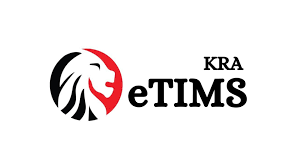Non-profit organisations are strongly desirous of funding an array of programs designed to meet the needs of their target population. A key concern on this ambition is the continued ability of the non-profit to fund these programs; this is a quandary that non-profit leaders face every day. Sustainability for the non-profit organisation means the ability to continue serving the target community even with the risk of funding termination from key donors.
The sustainability agenda has been an ever-present conversation, and it has lately been accelerated by the global pandemic. To deliver on long term planning necessary to diversify dependence on key donors while improving institutional capacity of the target population is a tight rope indeed. In spite of these challenges, the issue need to be tackled to prepare the non-profit to run efficiently even in the absence of primary funding from key donors.
The need for financial independence cannot be gain said, sound management and quality control have gained more currency. Non-profits must embrace the mindset to operate in an autonomous manner. A sustainable non-profit is defined by good ethos on corporate governance, has a capable well motivated staff and is able to whether financial headwinds without significant disruptions in quality of its service delivery. On the contrary, a non-profit struggling with sustainability will exhibit the following tell-tale signs:
Cutting corners on service delivery in order to reduce on expenses. The risks these non-profits are taking are significant. They are risking their reputations and belittling stakeholders and target population experience.
Skeleton staffing levels. It is important to consider the welfare and morale of the non-profit organisation. Allowing the headcount to shrink without recruiting will lead to overworked employees who in turn will provide a less than optimal service.
Significant reduction in program budgets. Driving out costs and improving efficiency is an essential part in growing the sustainability agenda. However, consistently applying a “do more with less” approach without the reciprocal review on the scope to be covered is a sure way to ruin.
What then are the practical steps that the non-profit must follow to instil the fiscal discipline necessary to drive the sustainability agenda forward? Next, we look at some measure that non-profit leaders can take.
As a leader of a non-profit, the law imposes upon you two primary duties: the duty of care, and the duty of fidelity. A duty of care is an obligation to take reasonable steps to not cause foreseeable harm and to act as an ordinarily prudent person would act in your position. The duty of fidelity means that you must act in good faith, you must not use information obtained in the course of your tenure to the detriment of the organisation. There are several parties who are interested in the non-profit: the target community, regulatory agencies, foundations, and donors. All these need to be treated with a duty of care and fidelity; this is the cardinal rule in non-profit sustainability.
Transparency
Non-profit organisation leaders need to consider what level of business engagement is heathy between themselves and the organisations that they serve. A situation of this type presents a potential conflict between individual financial interests and your duty and loyalty to the organization. A relationship of this nature may also look questionable to the public. Based on the level of risk that this posits, it is advisable that leaders in non-profits refrain from entering a business relationship with the organization that they serve. Boards should also be very forthright on engagements of this nature, and should this have to be done, it should clearly be in the best interest of the non-profit to do so. Prior to accepting appointment to the board, all members should fully disclose their financial interests with the non-profit.
Financial Responsibility and Program Budgets
The responsibility for making decisions of a financial nature and executing budgetary activities should be a devolved function across the non-profit. This responsibility needs to be supported with good information, frequent communication, and appropriate authority
The finance function should be at the centre of ensuring supply of good quality information. It is important that non-profit understands its real costs of programs and operating costs. This knowledge will drive quality decisions on fundraising gaps, procurement and contractual terms, and program and operating budgets expansion or modification. Budgets are critical because they provide the financial direction necessary to deliver on the non-profit’s objectives. Sound budgets should be realistic having applied reasonable assumptions and with clear accountability and reporting mechanisms.
Internal Controls
Non-profits must provide safeguards for all property, including cash or other assets. There should be reasonable assure that assets are used only for the intended purposes. Internal controls will be enhanced where there is sufficient segregation of duties among the employees so that no one person has absolute control over a process from end to end. In smaller organisations, the complete separation of duties and functions may not be possible. However, some measures need to be put in place to ensure that there is promotion of accountability and transparency in all transactions.
Audits on projects and financial reports
Donors expect that their grants will be put to good use. Non-profits are therefore expected to maintain a state of audit readiness; all records necessary to meet this objective must be readily accessible. An inclination to delay on supplying reliable documentation and explanations could raise questions and possibly a delay or termination in funding.
Final thoughts
It is our duty to make the world a better place. Sustainability ensures that we remain in balance now and in the future. To develop non-profits into more sustainable direction is to adapt and improve reactivity in the rapidly changing world. At FHC, we are committed to walk the journey with your non-profit organisation on practical steps to achieve sustainability, find out what we can do for you here.














